Several weeks ago here on Words like Trees, we surveyed a range of common narrative points of view, from character-turned-narrator first person to free indirect style, omniscient, and close third person. In the weeks since, and in particular as I have been making my way slowly (very slowly) through the first volume and a half of Victor Hugo’s Les Misérables, I have been paying closer attention to these third person narrators, considering who they are, what they are doing, what they may be hiding.
Today, we’ll do a bit of interrogating. We’ll see if we can unearth these narrators’ secrets. Then, we’ll consider how we might employ these ideas in our own writing.
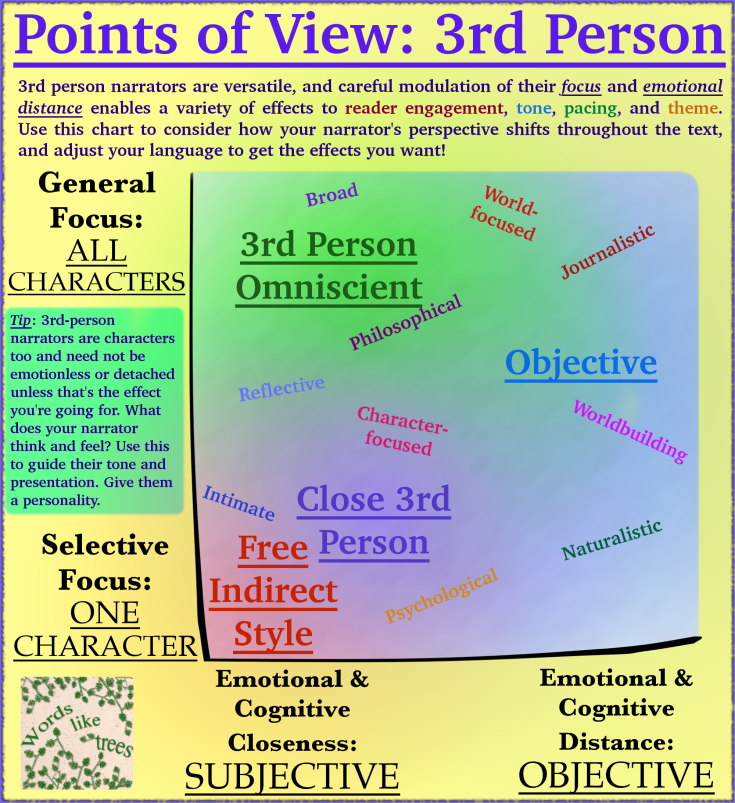
3rd Person: Distance and Truth
In third person narratives, the narrator is not a character participating in the story. The narrator sits outside, observes, may peer into the minds of one or more characters, may even use the characters’ words in their descriptions, but ultimately, within the story’s physical world, the narrator does not intervene.
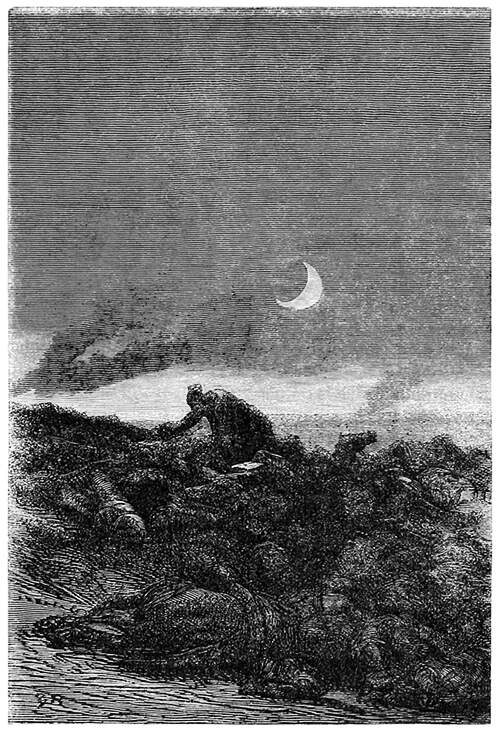
With this perceived distance from their stories, third person narrators are often granted a kind of free-pass regarding the truth of what they tell us. Readers do not doubt their veracity, or the narrator’s desire for readers to know what they need to know.
Because not all narrators tell us the truth. Some first person narrators (termed “unreliable”) report biased, incomplete, or even false accounts of the stories they tell. They may do so because of cognitive differences (The Curious Incident of the Dog in the Night-time), because of fear (The Handmaid’s Tale). They may simply lack the necessary information (Never Let Me Go). Sometimes, the narrator is nefarious, trying purposely to mislead us.
But third person narrators are largely immune from this or, indeed, any suspicion. Because they are not physical participants in the story, they must have no stake in its outcome. They must be neutral. They must be reliable, we simply assume. It’s almost as if these third person narrators are not people at all.
Who is the 3rd person narrator?
I think this question is a really important one, one that deepens our awareness of how stories work. So that we as writers have the fullest possible range of tools at our disposal, let’s examine it first from a theoretical point of view, then in a couple of examples.
Communication theory, author, and narrator
Once long ago, I think in high school, I learned as a kind of catechism that the author and the narrator are not the same. This assumption is so rooted in me that I find it a bit difficult to challenge, and I think that in most ways it’s a really useful idea. Clearly, when the author writes from the perspective of a fictional character in a first person narrative, author and character are not the same.
What about in third person? I think it’s a bit tricker to answer definitively, but I’ll attempt with a bit of basic communication theory:
All communication (of which a story is one type) involves a sender encoding a message, then a receiver decoding it:
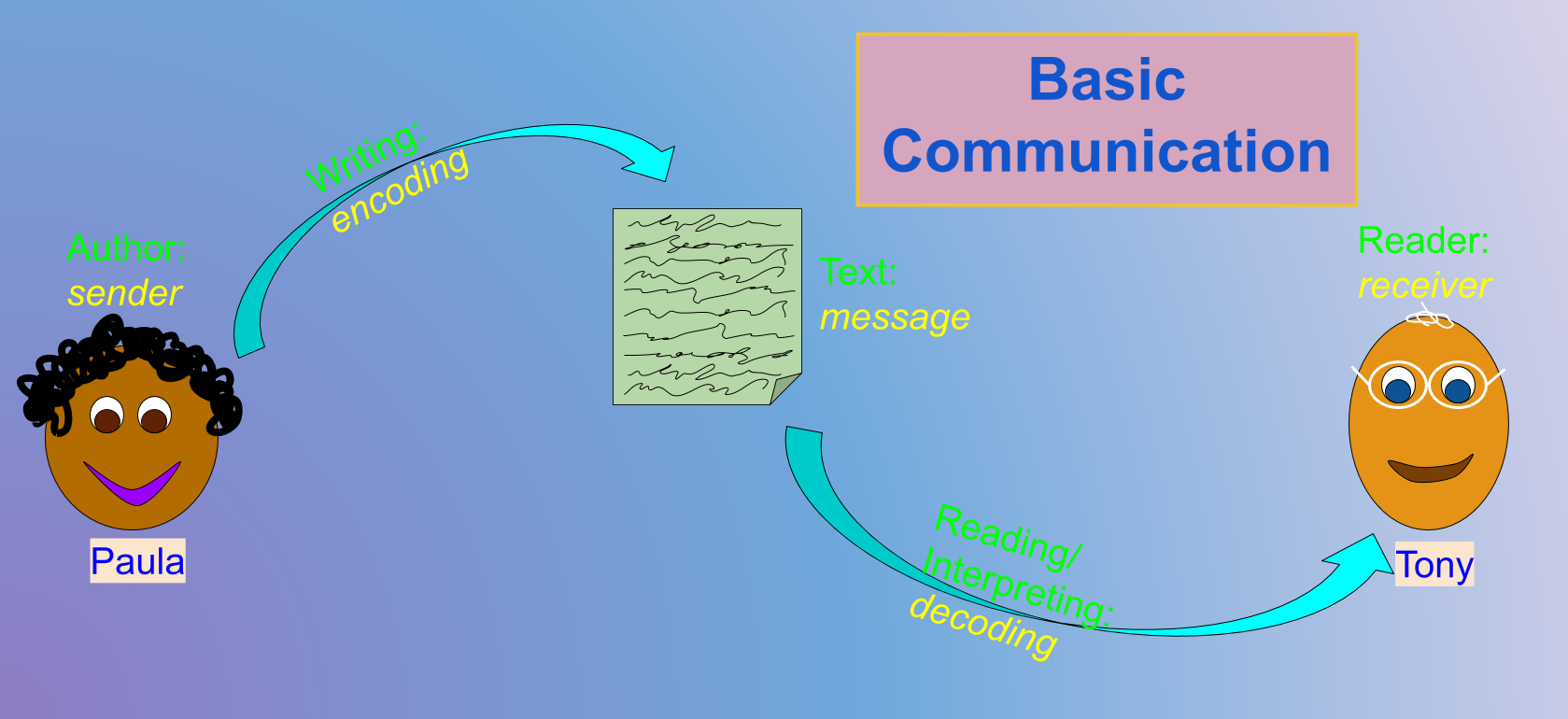
When our author Paula starts writing a story, she chooses whether to use first or third person. If she employs the first, and the narrator is a fictional character, then the message step in the diagram gets a little more complicated:
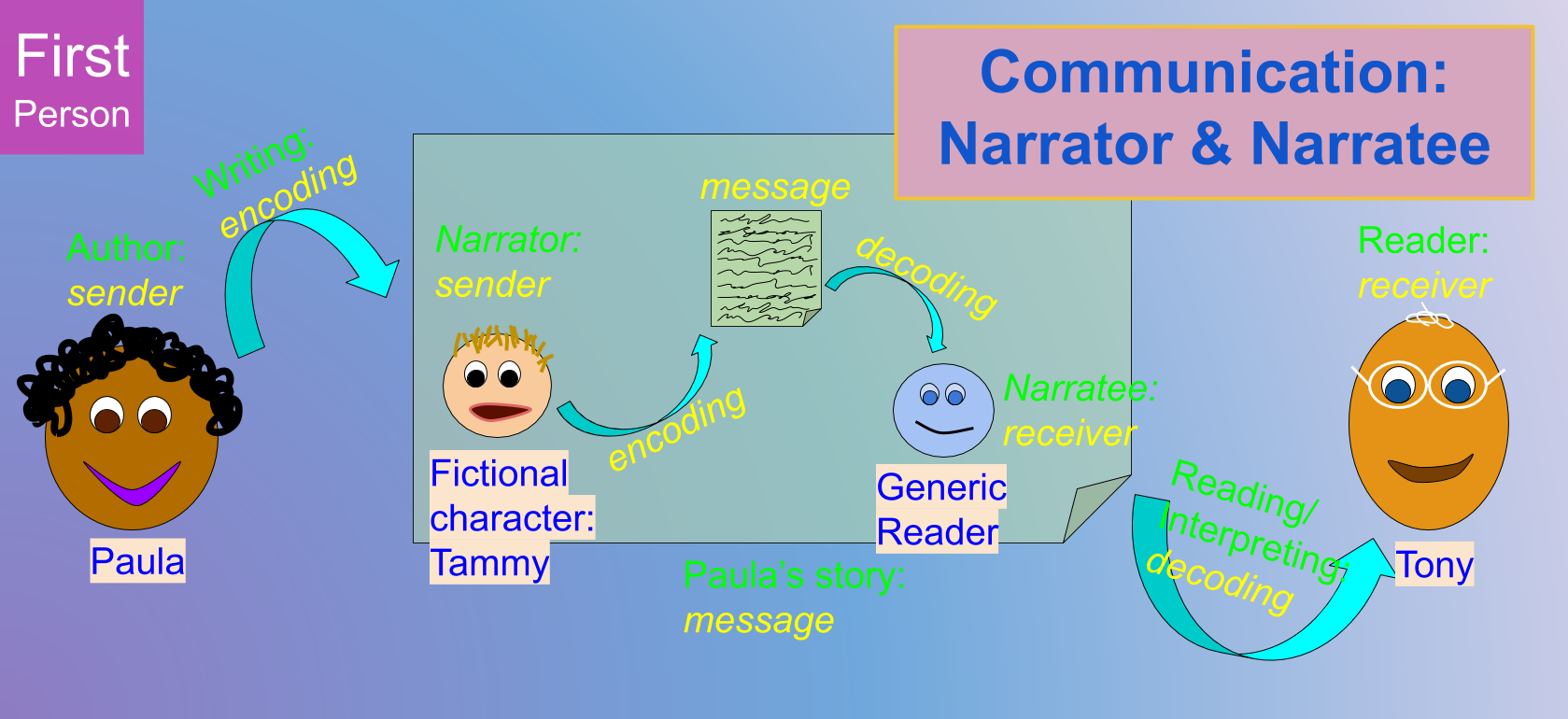
In a fictional first person narrative, it’s pretty clear that the author and narrator are different people. But what about in a third person narrative?
The assumption is often, I believe, that the third person narrator is really the author. When we write in third person, we may not even consider that the narrator could be anyone other than ourselves. “I’m the one writing it!” we would say to this silly question. If anything, the third person narrator, we say, is a window to ourselves.
It could be the same exact story being told, but if narrated in the third person, the diagram might look something like this:
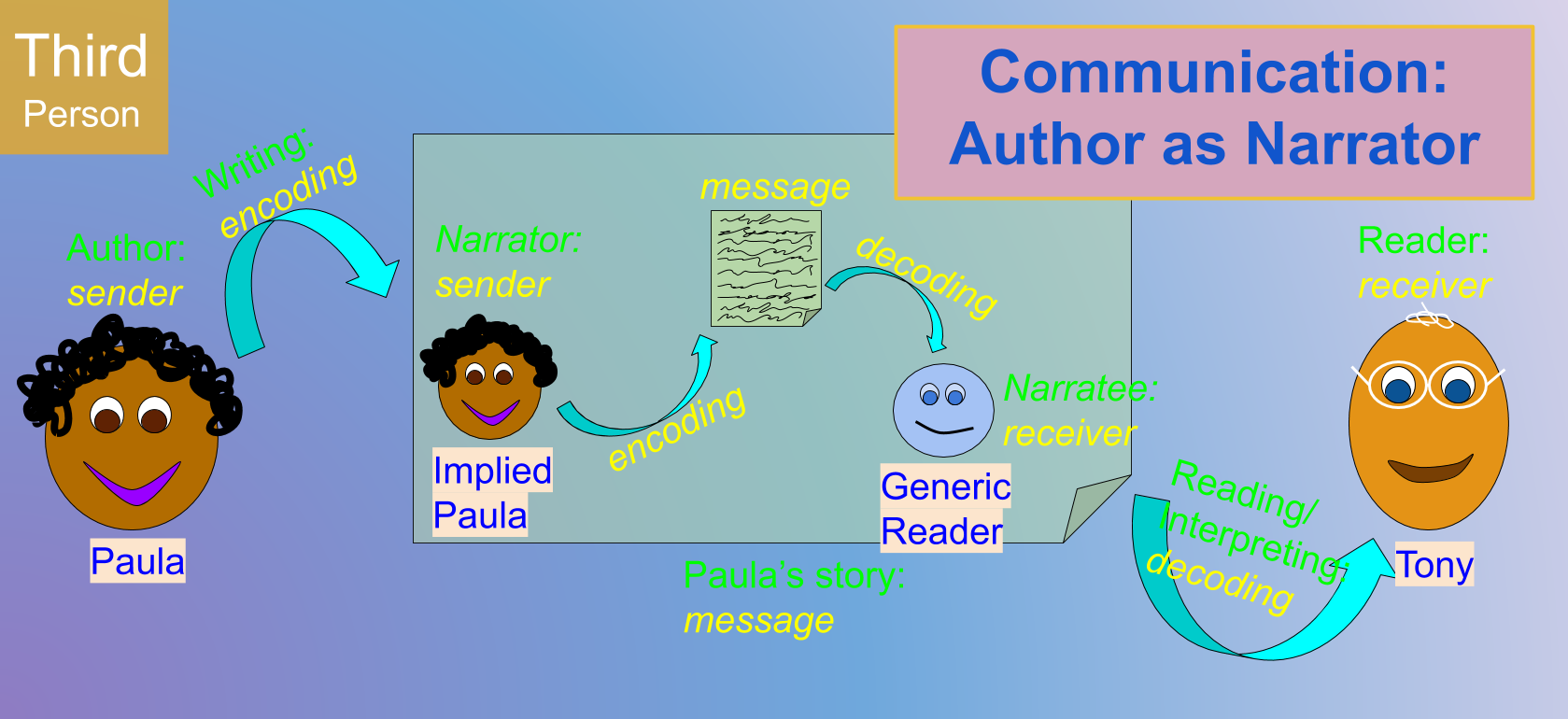
Are “Paula” and “Implied Paula” the same? My college English department would say no, for a couple of reasons:
- It makes things easier for literary criticism if the two are separate, because we can never truly know the real author’s intentions or thoughts (in fact, perhaps it is sacrilege even to consider these. The author, after all, is dead.). We can, however, conjecture at will about the narrator or implied author (some theorists would actually separate these out into two entities).
- Writers never render their full, authentic selves in a text. Such a feat would actually be impossible. The representation of the author may be very similar to the actual person of the author, but they are not the same thing, in the same way that a photograph of a person is not the same as the actual person. Therefore, the narrator of a third person text is not identical with the author.
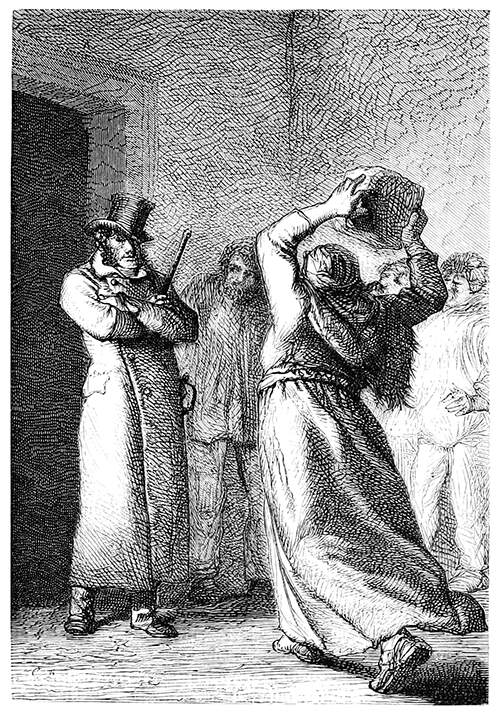
Occam’s Razor would probably disagree. There’s no reason to insert an extra entity. The author, Paula, is writing the story. She is narrating it. She is not imagining an additional Paula and then carefully selecting the words this imagined Paula would use. There is only one.
But let’s move now outside this realm of theory and literary criticism: we are writers. We are trying to hone our craft. What is the lesson here for us?
To me, the lesson is, that we might choose (and the key idea here is that we must choose it to be so) to narrate in the third person as ourselves. Yet we might very reasonably choose differently. Why should the third person narrator be ourselves? Why cannot the third person narrator be a character in their own right? Why must the third person narrator make themselves as invisible as possible? Why is it only first person narrators who can be unreliable?
Example: Les Misérables
Victor Hugo’s promethean epic pushes a number of boundaries. What I want to explore in it today is its narrator who, to a modern reader, shocks with his intrusiveness.
Digressions
Wikipedia claims that more than one quarter of the book has almost no relation to the actual plot or subplots. Rather, Hugo (or Hugo’s narrator) digresses into historical, moral, and religious argument that often extends to the length of whole chapters or, in the case of the opening book of Volume 2, which features a hair-rendingly detailed account of the Battle of Waterloo, about 22,000 words.
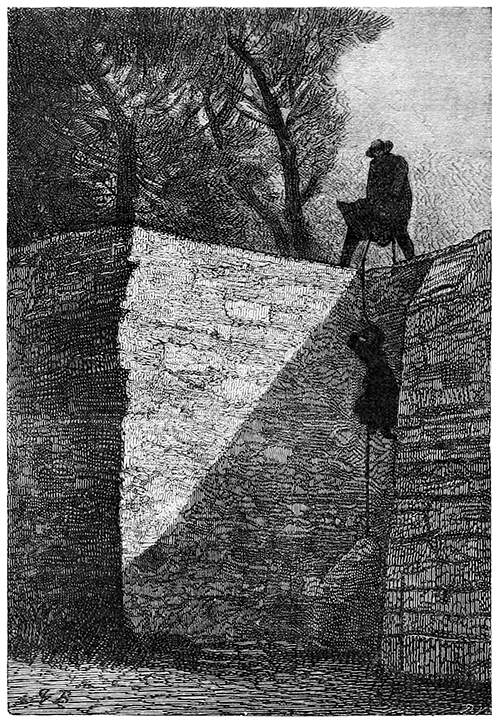
It is worth noting that some of these digressions are put into the mouths of characters, which makes their relationship to the narrator or to Hugo that much more complicated.
To a modern reader (certainly to me) such departures from the plot are at first confusing, even frustrating (“But what is the point?”). Yet as the novel has progressed (I’m currently in the midst of Volume 2 of 5), I find that I am enjoying these digressions more, am coming, in fact, to see some interesting thematic resonances with the plot.
Let’s peek at a portion of one of these. Here are the opening and then final paragraphs of Volume 1 Book 3 Chapter 1, “The Year 1817.” Note that for all quotations, I am using Isabel Hapgood’s 1887 translation which, according to my bit of internet sleuthing, does a good job of capturing the musicality of Hugo’s language:
1817 is the year which Louis XVIII., with a certain royal assurance which was not wanting in pride, entitled the twenty-second of his reign. It is the year in which M. Bruguiere de Sorsum was celebrated. All the hairdressers’ shops, hoping for powder and the return of the royal bird, were besmeared with azure and decked with fleurs-delys. It was the candid time at which Count Lynch sat every Sunday as church-warden in the church-warden’s pew of Saint–Germain-des-Pres, in his costume of a peer of France, with his red ribbon and his long nose and the majesty of profile peculiar to a man who has performed a brilliant action. The brilliant action performed by M. Lynch was this: being mayor of Bordeaux, on the 12th of March, 1814, he had surrendered the city a little too promptly to M. the Duke d’Angouleme. Hence his peerage. In 1817 fashion swallowed up little boys of from four to six years of age in vast caps of morocco leather with ear-tabs resembling Esquimaux mitres. The French army was dressed in white, after the mode of the Austrian; the regiments were called legions; instead of numbers they bore the names of departments; Napoleon was at St. Helena; and since England refused him green cloth, he was having his old coats turned. [The paragraph continues.]
...
This is what floats up confusedly, pell-mell, for the year 1817, and is now forgotten. History neglects nearly all these particulars, and cannot do otherwise; the infinity would overwhelm it. Nevertheless, these details, which are wrongly called trivial — there are no trivial facts in humanity, nor little leaves in vegetation — are useful. It is of the physiognomy of the years that the physiognomy of the centuries is composed. In this year of 1817 four young Parisians arranged “a fine farce.”
There are a few items to note here:
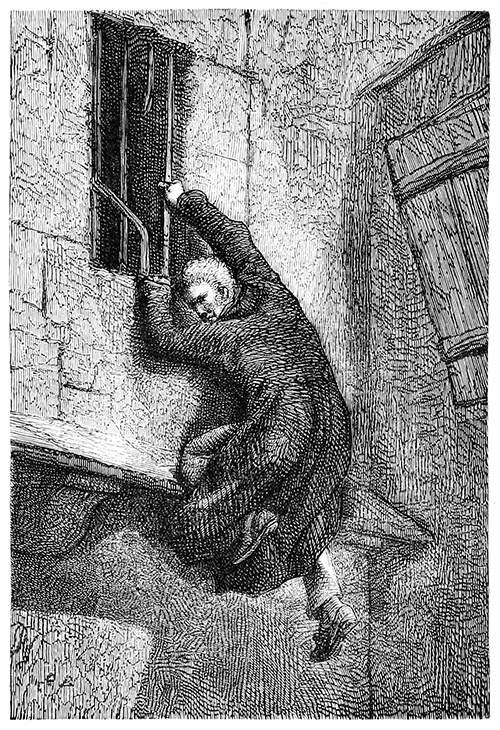
First, the digression undoubtedly gives a great kind of context to the rest of the story. I love the piling-up sensation I get reading the first paragraph. I feel that Paris was absolutely bubbling with activity, that there was so much to be seen, heard, so much gossip to be consumed. Although none of the people mentioned (at least not yet) figure in any way in the plot of the novel, this historical picture is glorious.
Second, we get so much of our narrator’s personality in these paragraphs. There is his humor–the ironic mockery of Count Lynch and the juxtaposition of the great Napoleon with quotidian concerns about green cloth are clear enough to me; I expect if I had a good set of footnotes there is more of this. There is also a great sense of the cosmopolitan in the narrator, this ready engagement with the city scene, this name-dropping. And in the final paragraph, the narrator meditates briefly on historical knowledge, or our lack of it, and this so clearly, I think, informs how the narrator wants us to understand the significance of his characters (“They are not trivial!” he is saying)–it leads us beautifully into the following chapters.
Narratorial Judgement
The second aspect of Hugo’s narrator that so clashes with modern notions of how a third person narrator should behave is his readiness to give his opinion, to judge characters, to insert himself conspicuously into places where narrators today would never tread.
Take a look at this early description of Madame Thenardier:
This Madame Thenardier was a sandy-complexioned woman, thin and angular — the type of the soldier’s wife in all its unpleasantness; and what was odd, with a languishing air, which she owed to her perusal of romances. She was a simpering, but masculine creature. Old romances produce that effect when rubbed against the imagination of cook-shop woman. She was still young; she was barely thirty. If this crouching woman had stood upright, her lofty stature and her frame of a perambulating colossus suitable for fairs, might have frightened the traveller at the outset, troubled her confidence, and disturbed what caused what we have to relate to vanish. A person who is seated instead of standing erect — destinies hang upon such a thing as that.
Pulling out a few phrases, a bit of basic inference can throw our narrator into sharp relief:
| Quotation | Characteristic of the narrator |
| “the type of the soldier’s wife in all its unpleasantness” | The narrator, even as he, in much of the novel, lifts up the poor, does seem to make class distinctions and categorically take displeasure at some groups. |
| “Old romances produce that effect when rubbed against the imagination of cook-shop woman” | The narrator subscribes to the once pervasive view that reading is dangerous for women. He holds fairly traditional ideas of gender roles and ties moral rightness to their dutiful enactment. |
| “a perambulating colossus suitable for fairs” | The narrator is openly mocking the character here. She does not have the opportunity to exist for herself; the narrator ridicules her, showing a surprising cruelty, even if it is directed at a “bad” character. |
| “A person who is seated instead of standing erect–destinies hang upon such a thing as that” | The narrator makes a broad generalization about the nature of the world, seeing in the seemingly insignificant the earth-shattering (this is in keeping with the “The Year 1817” quotation above). |

Narrator as Character
I know almost nothing about the man Victor Hugo. I do know, however, a fair bit about his narrator. Flying in the face of third person narrative convention today, the narrator of Les Misérables refuses any kind of objectivity. He insists on giving his opinion, somewhat like watching a director’s commentary on a film.
The thing that gets me is, why are such narrators off the table today? Certainly they aren’t right for every story, but why can a narrator not have personality? Why should a narrator not judge, if that is what is required to carry forward the message we are trying to convey? I’d like to see a revival of these intrusive third person narrators. I’d like to see us at least try.
Example: Joanna and Ulysses
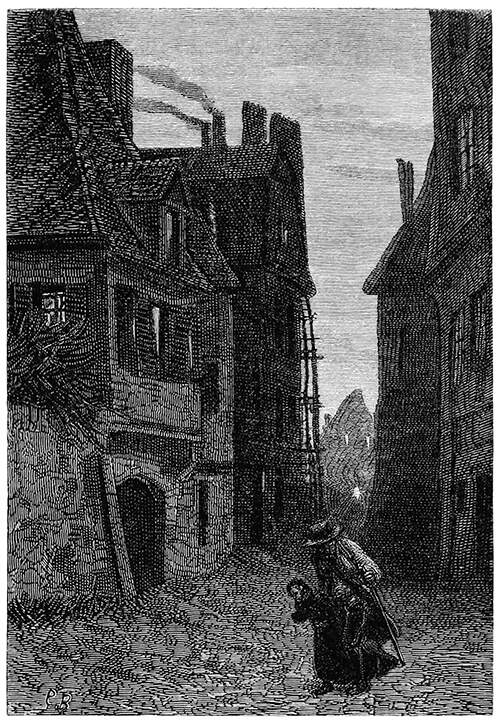
May Sarton’s 1963 Joanna and Ulysses is a favorite of mine. I stumbled across it many years ago referenced in a book about archetypes, and its simple tale of healing through art and the care of others is one I frequently return to.
Sarton uses a third person narrator in a much more (modernly) conventional way than Hugo. Mostly in close third person focused on protagonist Joanna, sometimes dipping into free indirect style or with occasional pans into omniscience, the novella’s narrator does not explicitly intrude. But a bit of careful attention to passages here or there reveals a character to this narrator nevertheless:
The young man slouched toward her, and spoke in an angry, whining singsong, "He might last to the top," he said, "We'll work him till he drops, and that's that. Do you think we are rich?" He spat again. "We can't afford to keep a sick animal. If he dies, all right, kaput!"
Joanna flinched before the German word. The memories of cruelty and violence swept over her, cruelty about which one could do nothing; she experienced again the corroding poison of helplessness before violence. She felt suddenly weak, as weak as the donkey. The donkey had no strength, it seemed, even to wag its tail at the flies. It waited, just barely able to stand, its head drooping a little. The patience and suffering of the donkey were awful.
And Joanna, in her weakness, turned away. What could she do, after all? What use to stay and witness an agony for which she could do nothing? It was not her business Then she heard the whack of a stick, and rage gave her courage. Before she knew what she was doing, she had seized the stick by one end and shouted,
"No! No!"
There are no large digressions. Some statements might be explicit judgment by the narrator, but they could also reasonably be ascribed to the character Joanna.
But the narrator is absolutely present in the choices she makes about detail, where she chooses to direct her gaze. In particular, this narrator has an eye for the philosophical, as she twice in these few paragraphs identifies the generality about trauma, that “one could do nothing.”
The narrator chooses to focus less on the explicit confrontation between Joanna and the man than on Joanna’s interior train of thought and feeling, suggesting a characteristic of introspection.
Are these traits those of May Sarton? Maybe. Probably. But they don’t have to be, and it’s a mistake not to recognize that these traits of the narrator are open choices to us as authors.

Updating the 3rd Person Narrator
A part of me wants to argue against the third person entirely. There are no third person narrators, perhaps. All narrators are first person, and some simply tell the stories of other people. Perhaps going so far, however, is not necessary.
I do believe that third person narrators should be given the same consideration as any other character. What type of person would be most helpful in narrating the story you are trying to tell? Maybe that person is exactly like you, but they may not be. They may be more curious about certain things. They may be more practical. They may be pushy. They may be unreliable. Lending the narrator this attention, we can make an informed choice that will, in the end, play its own role in the honing of our final texts.
Is the in-your-face, judgmental narrator of Hugo a relic of the past? I’d like to say not. I’ve been experimenting a bit with this in a recent short story draft, and it does feel odd, supremely so, to be inserting judgments. Yet I have to believe there’s some real potential there. I’m going to see where it takes me.
This all relates, in the end, to voice. As writers of fiction, we have great scope to modify voice to fit each circumstance. Let us leave no avenue for this unexplored, including the third person narrator.
What do you think? When you write in the third person, is your narrator you? Do you build the narrator consciously? Do they just appear? Do please share.
Best wishes, and happy writing,
Jimmy


I definitely have narrative voices. Stories have style, and the style needs to fit the story. Someone s always telling my stories. Not often explicitly: I seldom frame a story (except in a novel) by someone TELLING A STORY, but that’s what’s happening as I write. The narrative voice might be informal and chatty, or formal and distant, or colloquial or childish. That’s just how I do. Great post!
LikeLike
I was looking for a post concurring with my feeling that the contemporary convention of third-person narrative is too stringent. I think I’ve found it here. I’m trying to find a skillful way to portray a character/narrator who is intimate with my protagonist. I find myself, as writer, wanting to comment on the protagonist’s plight without obvious intrusion. I think it’s possible through a somewhat characterized narrator who is the protagonist’s best friend. So, the narrative voice is not mine and would be subtly unreliable.
LikeLike